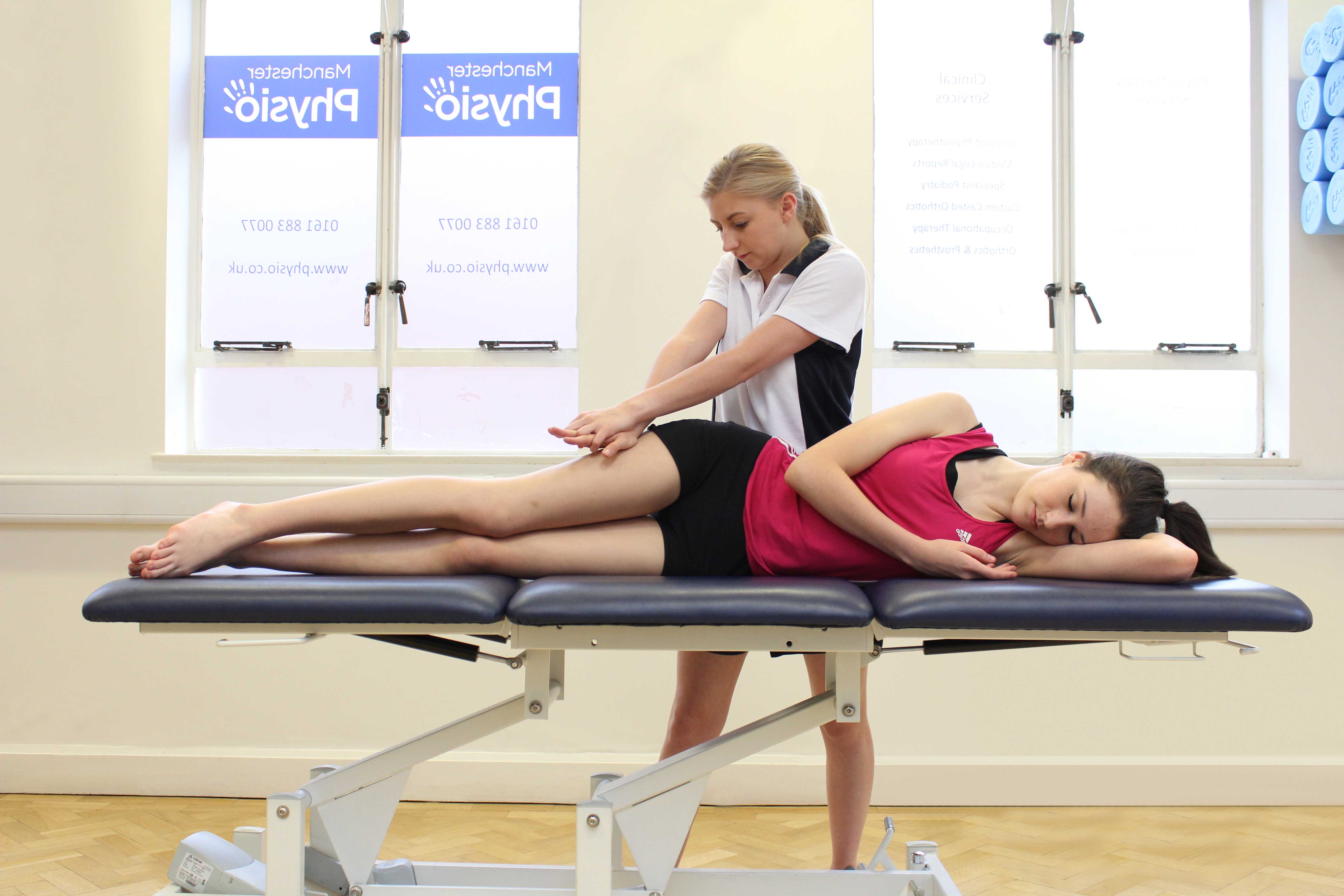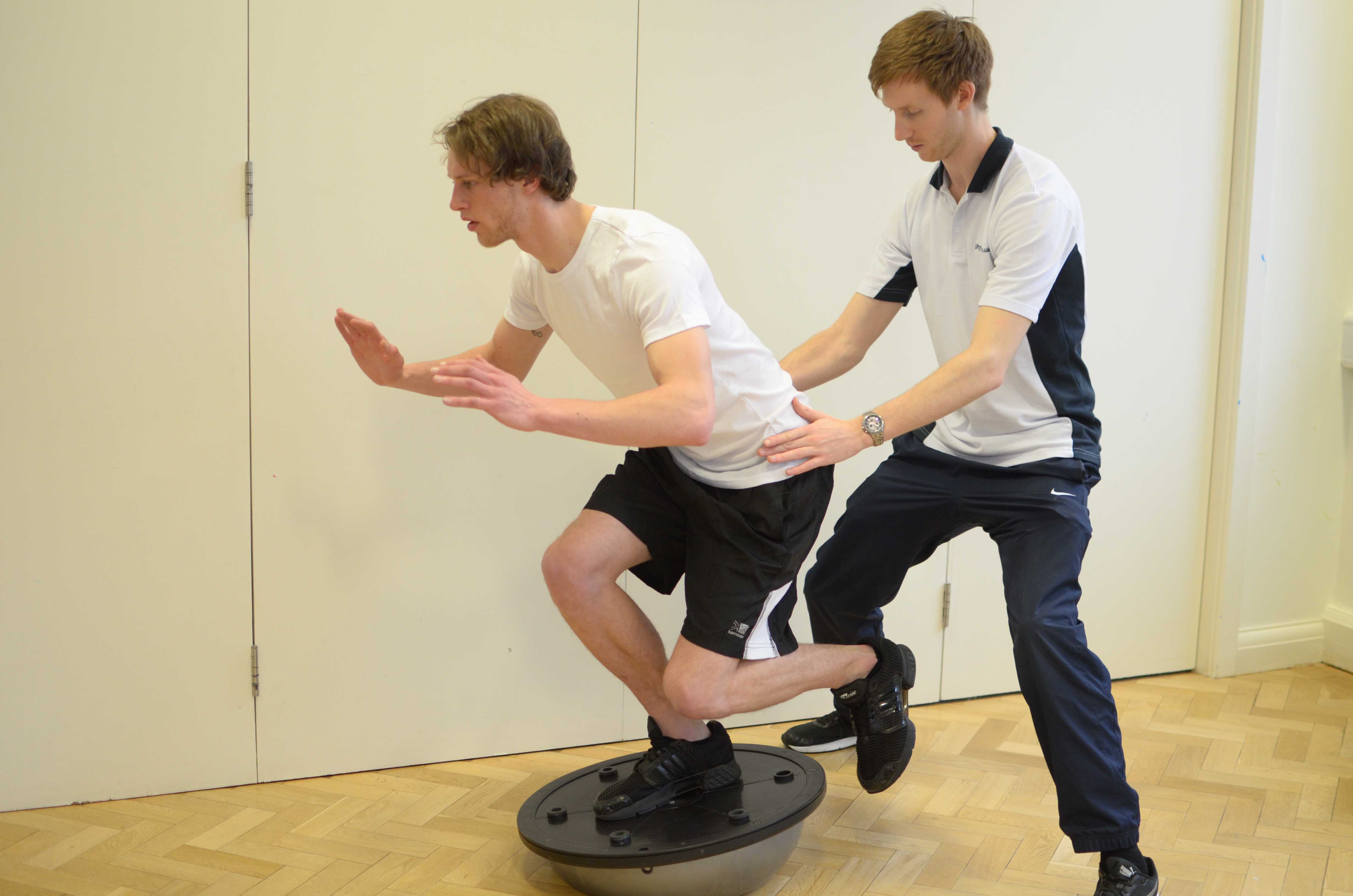 Above: Therapist massaging illiotibial band to relieve painful symptoms
Above: Therapist massaging illiotibial band to relieve painful symptomsCauses of Iliotibial Band Syndrome
One of the main causes of ITBS is running due to the repetitive action putting stress upon the Iliotibial Band which works hard to stabilise the knee through movement. Overload results in friction at the knee where the band inserts, leading to inflammation and pain in the outer side of the knee.
Other causes of ITBS include:
- Wearing poor footwear when running e.g. unsupportive or worn out
- Change of running terrain such as introducing inclines/declines or running on a firmer surface
- An increase in running distance
- Having time out from running then going straight back into long distance runs
- Weakness in the hip and gluteal muscles
- Poor biomechanics
- Poor running style
 Above: Dynamic stabilisation exercises to challange the iliotibial band supervised by physiotherapist
Above: Dynamic stabilisation exercises to challange the iliotibial band supervised by physiotherapistSigns and Symptoms of Iliotibial Band Syndrome
The main symptom of ITBS is pain on the outer side of the knee which particularly increases during and after running.
Other signs and symptoms of ITBS include:
- Swelling on the outer side of the knee
- Pain on bending the knee past 30 degrees
- Pain while running, particularly downhill
- Increased pain following a run
- Pain settling when resting
Physiotherapy for Iliotibial Band Syndrome
Physiotherapy for ITBS aims to reduce your pain and get you back to running and sport as soon as possible.
Following your 'Biomechanical running' assessment your specialist therapist will devise a bespoke plan for you.
Physiotherapy treatment for Iliotibial Band Syndrome includes:
- Explanation of the condition
- Running cues and drillsbased on your 3D video analysis
- Strengthening program
- Stretching program
- Soft tissue release
- Acupuncture
- Heat therapy
- Electrotherapy
Benefits of Physiotherapy for Iliotibial Band Syndrome
There are many great benefits of physiotherapy for ITBS.
Benefits include:
- Reduced pain
- Identification of the cause of the problem
- Correction of muscle imbalance
- Return to running as soon as possible
- More efficient running style
- An improved training programme
- Enhanced performance in sports
- Injury prevention
- Achieving your goals
If you suspect that you or someone you know has ITBS, you can book a Biomechanical Running Assessment with one of the specialist physiotherapists by calling Physio.co.uk today on 0330 088 7800. You can also book appointments online using our online booking system

 0330 088 7800
0330 088 7800

































